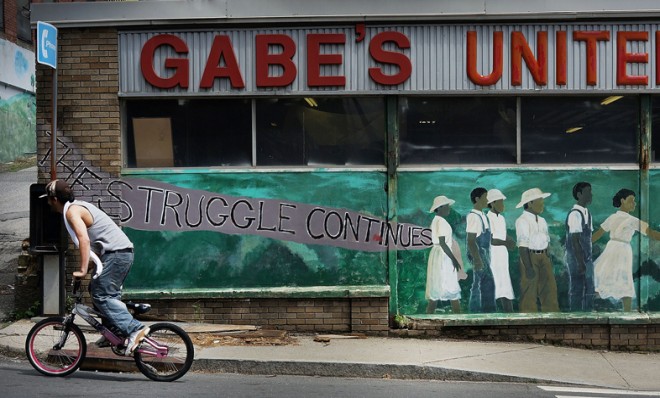Why 4 out of 5 Americans are struggling to make ends meet
Nearly 80 percent reportedly face joblessness, poverty, or welfare at some point in their lives

A free daily email with the biggest news stories of the day – and the best features from TheWeek.com
You are now subscribed
Your newsletter sign-up was successful
President Obama's recent "pivot" back to the economy, kicked off by a speech at last week at Knox College in Illinois, comes at a time when many Americans are still struggling financially.
How bad is it? About 80 percent of Americans deal with joblessness, near poverty, or reliance on welfare at some point in their lives, according to a new report by the Associated Press.
The study also challenged the perception that poverty is primarily a problem for urban minorities. Yes, nonwhites still have the highest chance of dealing with economic insecurity, at 90 percent. But the AP's report showed that white people are seeing some of the biggest increases in near-poverty and joblessness, with 76 percent facing economic hardship during their lives.
The Week
Escape your echo chamber. Get the facts behind the news, plus analysis from multiple perspectives.

Sign up for The Week's Free Newsletters
From our morning news briefing to a weekly Good News Newsletter, get the best of The Week delivered directly to your inbox.
From our morning news briefing to a weekly Good News Newsletter, get the best of The Week delivered directly to your inbox.
In fact, whites make up 41 percent of the country's poor. The number jumps in rural areas, where they constitute 60 percent of the people living below the poverty line — officially $23,021 a year for a family of four.
That could help push poverty to the forefront of the national conversation, said Mark Rank, a professor at Washington University in St. Louis, Mo., who crunched the numbers for the study:
Poverty is no longer an issue of 'them', it's an issue of 'us.' Only when poverty is thought of as a mainstream event, rather than a fringe experience that just affects blacks and Hispanics, can we really begin to build broader support for programs that lift people in need. [Associated Press]
So why are Americans of all backgrounds having trouble making ends meet?
The report put the blame on the "globalized U.S. economy, the widening gap between rich and poor, and loss of good-paying manufacturing jobs as reasons for the trend."
A free daily email with the biggest news stories of the day – and the best features from TheWeek.com
Income inequality has taken center stage in the past week, thanks to Obama's assertion that it was tearing apart the country's social fabric. Upward mobility has been "eroding over the last 20, 30 years, well before the financial crisis," he said in an interview with The New York Times.
More from the interview:
If we don’t do anything, then growth will be slower than it should be. Unemployment will not go down as fast as it should. Income inequality will continue to rise. That’s not a future that we should accept. [The New York Times]
There are, of course, differing opinions on how to improve the economy, all of which has resulted in partisan gridlock in Congress and little hope that the government will step in to take significant action to address the country's numerous economic problems.
For some on the right, government inaction is precisely what's needed. "Indeed, it’s when the President and Washington are trying to fix the economy that we all suffer," says John Tammy at Forbes. "How about a permanent vacation for the White House and Congress?"
However, others see Obama laying the groundwork for a new economic consensus. "Obama may not get any bills passed, but he can at least spend the next three years hammering home two key points that will help him in the legacy department," says Michael Tomasky at The Daily Beast. Those include investing in the middle class and reducing the income gap.
Keith Wagstaff is a staff writer at TheWeek.com covering politics and current events. He has previously written for such publications as TIME, Details, VICE, and the Village Voice.
-
 Why is the Trump administration talking about ‘Western civilization’?
Why is the Trump administration talking about ‘Western civilization’?Talking Points Rubio says Europe, US bonded by religion and ancestry
-
 Quentin Deranque: a student’s death energizes the French far right
Quentin Deranque: a student’s death energizes the French far rightIN THE SPOTLIGHT Reactions to the violent killing of an ultraconservative activist offer a glimpse at the culture wars roiling France ahead of next year’s elections
-
 Secured vs. unsecured loans: how do they differ and which is better?
Secured vs. unsecured loans: how do they differ and which is better?the explainer They are distinguished by the level of risk and the inclusion of collateral